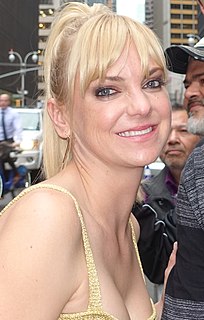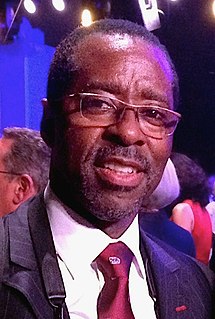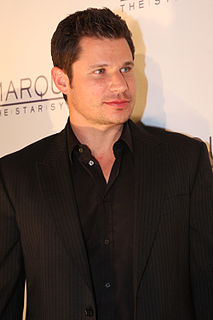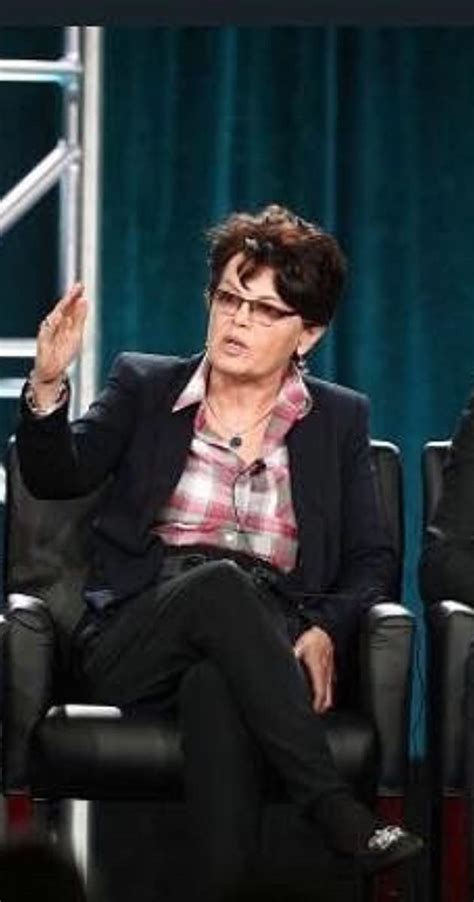A Quote by Heath Ledger
I have never had great expectations of my performance or of a film. I try not to think about the outcome. If you look that far ahead, it sort of taints your choices as an actor. I try as hard as I can to believe that no one is ever going to see it and that it's not even a movie. Then you can allow yourself to bare more. Then, once a project is done, I tend to forget about it until it comes out.
Related Quotes
Once you allow yourself to identify with the people in a story, then you might begin to see yourself in that story even if on the surface it's far removed from your situation. This is what I try to tell my students: this is one great thing that literature can do - it can make us identify with situations and people far away.
Sometimes you think, "Oh man, this is going to be a fantastic movie," and then when you see it put together, you're like, "Oh, huh. Well, that didn't turn out quite the way I thought." Sometimes you think you're part of a project and it isn't that great, and then it sort of becomes a pleasant surprise. But I think there's just too many elements that affect the tone of a movie, so I think even for a director, it may be hard to gauge that.
Wes Anderson is a perfectionist, so you have to just be ready to try it this way, try it this way, try it that way, and then try it this way. And then, once you think you've got it all and it's done, then you're going to be called back in two or three months so you can try it that way and try it this way. You've got to give him all of it.
As a father, you find yourself telling this to your kids a lot. My son, when he didn't want to play baseball, I was like, "Buddy, try it. Try playing baseball and if you don't like it, that's fine. But I want you to try it. I want you to try as hard as you can at it. And then we'll talk about it." You kind of have to give yourself the same pep talk. As a 43-year-old, you're like, "You know what? Just, try it. Try as hard as you can, give it everything you got and then accept the results."
When you're making a movie, you don't think about the outcome. That's something I'm grateful for: whenever I go and do a new project, I never think about the outcome. It's always just about the work at hand. That's the fun part. The other part is always something I've had a struggle with, which is promoting the film. I know it's important.
You never know when you're taking a job, ever... but you try to take good scripts. That's all you can do as an actor - take the best thing available. Even then, it's not [really] in your control. Certainly not in film and TV, because there are so many other elements. You just have to take control of your own performance.
Screenwriting is a terrible way to make a living and I always try to talk anyone out of it. Until you sit in a story meeting with studio executives with no particular ability or actors who haven't even graduated high school telling you exactly how to change your script, you haven't experienced what it's really like to be a screenwriter in Hollywood. Also, unlike novelists and playwrights, you don't own the copyright on your original material. It hurts when you sell a project you love and then suddenly the project you really cared about will never see the light of day.
It's hard to see a film one time and really "get it," and write fully and intelligently about it. That's a review. That's not film criticism. And there's so many expectations involved, too. You're going in to see the latest Martin Scorsese or Stanley Kubrick film, you really have high hopes, and you can't help but find that it's not exactly what you had in your head going in. Until you can watch it again, you can't accept the work for what it intends to be. It takes at least a second viewing.
Your mind has a way of not letting you forget things you wish you could. Especially with people. Like, you'll always try your best to forget things that people say to you or about you, but you always remember. And you'll try to forget things you've seen that no one should see, but you just can't do it. And when you try to forget someone's face, you can't get it out of your head.
You don't believe that your friend could ever do anything great. You despise yourself in secret, even – no, especially – when you stand on your dignity; and since you despise yourself, you are unable to respect your friend. You can't bring yourself to believe that anyone you have sat at table with, or shared a house with, is capable of great achievement. That is why all great men have been solitary. It is hard to think in your company, little man. One can only think 'about' you, or 'for your benefit', not 'with' you, for you stifle all big, generous ideas.



































